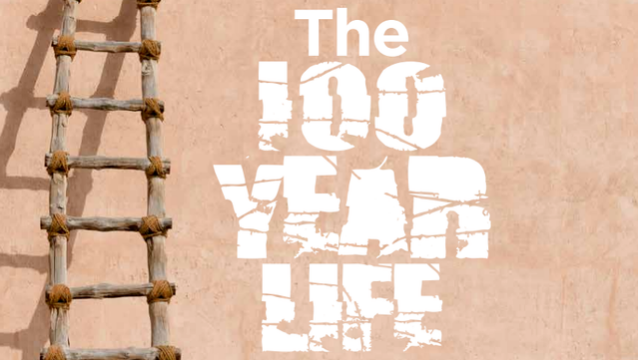Global life expectancy is growing at its fastest rate since the 1960s. This changes everything: for individual lives, the organisations they work for, and for governments that have to regulate and balance the consequences for wider society.
The 100-Year Life represents the outcome of a three-year conversation, dissecting “great globules” of new ideas generated by the collision of our disciplines of psychology and economics. Not all can be deconstructed until they actually transpire. But while there’s extensive research still to be done, we’ve set out a framework, a structure and directions of travel.
When confronted with the implications of living for 100 years, students fear having to work until the age of 80. They dread being old – and possibly lonely and infirm – for longer. It’s certainly true that people will have to cultivate their lives more actively, from an earlier age, and that how to do so will need to be part of everyone’s education.
Longer lifespans and the 'three-stage life'
But there is potential for longer lifespans to be a precious extension of life that makes time for more experiences, multiple careers, richer relationships and greater self-actualisation. The longer the life, the farther you can travel from your beginnings – initial conditions matter less.
While today, adult lives follow a set three-stage linear trajectory – education, work, retirement – in a 100-year life, the fixed succession must yield to a way of living that is more flexible and responsive – a multistage life with a variety of careers, breaks and transitions. This is the only way to make a long life a gift.
The breakdown of the three-stage life will send seismic tremors through the corporate, institutional and legislative structures that cohere around it, but the immediate onus will be on individuals making sense of their own lives.
In a seven or eight-stage life, coupled with longevity, abundant resequencing combinations put an emphasis on options and choice.
Economics teaches that the value of options is dependent on duration and volatility. As technology-fuelled, corporate and demographic change coalesce, many of today’s jobs will disappear to be replaced by others as yet undreamed of. That makes it vital to avoid dead ends. The longer the horizon the option can be exercised in, the greater the value in not shutting it down.
Why intangible assets are so important
It will also be crucial to make some decisions early, for example, around savings (to support yourself through 35 years of retirement) or curtailing unwise lifestyle habits that may restrict your choices later. One strong message in the book is the importance of intangible assets of all kinds for a blessed, long life – networks and relationships. The 100-year life will demand further changes in gender roles, requiring both men and women to become more adept at switching roles and priorities with partners.
Resilience and cultivating a playful mindset
Personal resilience will also count: plasticity, flexibility, willingness to engage with the new, juvenescence – the willingness to retain a playful streak. All that day-dreaming, trying on personalities, just messing about, can help to keep you curious and open to the world.
The things that make for a full and happy life for individuals will challenge organisations and governments, the hidden architects and curators of our current three-stage life. So much legislation and corporate practice uses fixed or turnstile dates. Think of how much you can predict from knowing someone’s age and gender within a firm: rank, title, salary, incentives – that’s all going to be scrambled.
The consequences for use of time and leisure may be as momentous as those triggered by the Industrial Revolution. Firms will want to keep it simple, but individuals with ideas and human capital are the scarce resource. Corporations will either have to outsource even more than currently or get personal: at the moment they know more about their consumers than their own personnel.
The advantages of the plug-and-play employment model used in the emerging platform economy will not be lost on employers struggling to respond to the fragmenting demands of an age-diverse workforce. Organisations are going to have to come up with answers to some deep questions.
Health, education and income inequalities will impact the 100-year life
The fallout from the 100-year life will be even more unwelcome for governments. A multistage life makes a nonsense of much current state provision. For example, education cannot be a single, upfront, depleting investment: it must be spread over a whole career.
As in pensions and training, a raft of lifetime provisions will have to replace today’s age-related ones, with underpinning legislation unpicked. In healthcare, the long-mooted switch from cure to prevention must begin now. While the better-off half of the population can anticipate a 100-year life, for the poorer half it’s 85 years. A 15-year difference in life expectancy due to income is grossly unfair. We tried to tackle income inequality in the 21st century; we must do the same for health.
Another anxiety is about lower-paid workers with less in-demand skill sets and little bargaining power with employers, who face having to work to age 80 (with a life expectancy of 85). How do we ensure it’s not just those with substantial resources who get the benefit of those extra years?
A new agenda and a revised contract
In short, the 100-year life delineates a massive agenda for individuals, organisations and governments. For business, it’s about a new contract with a different, less biddable and wildly diverse workforce. And this is just the start.
Register for insights and updates or implement one of our levy-funded leadership programmes by clicking on the button below.

















